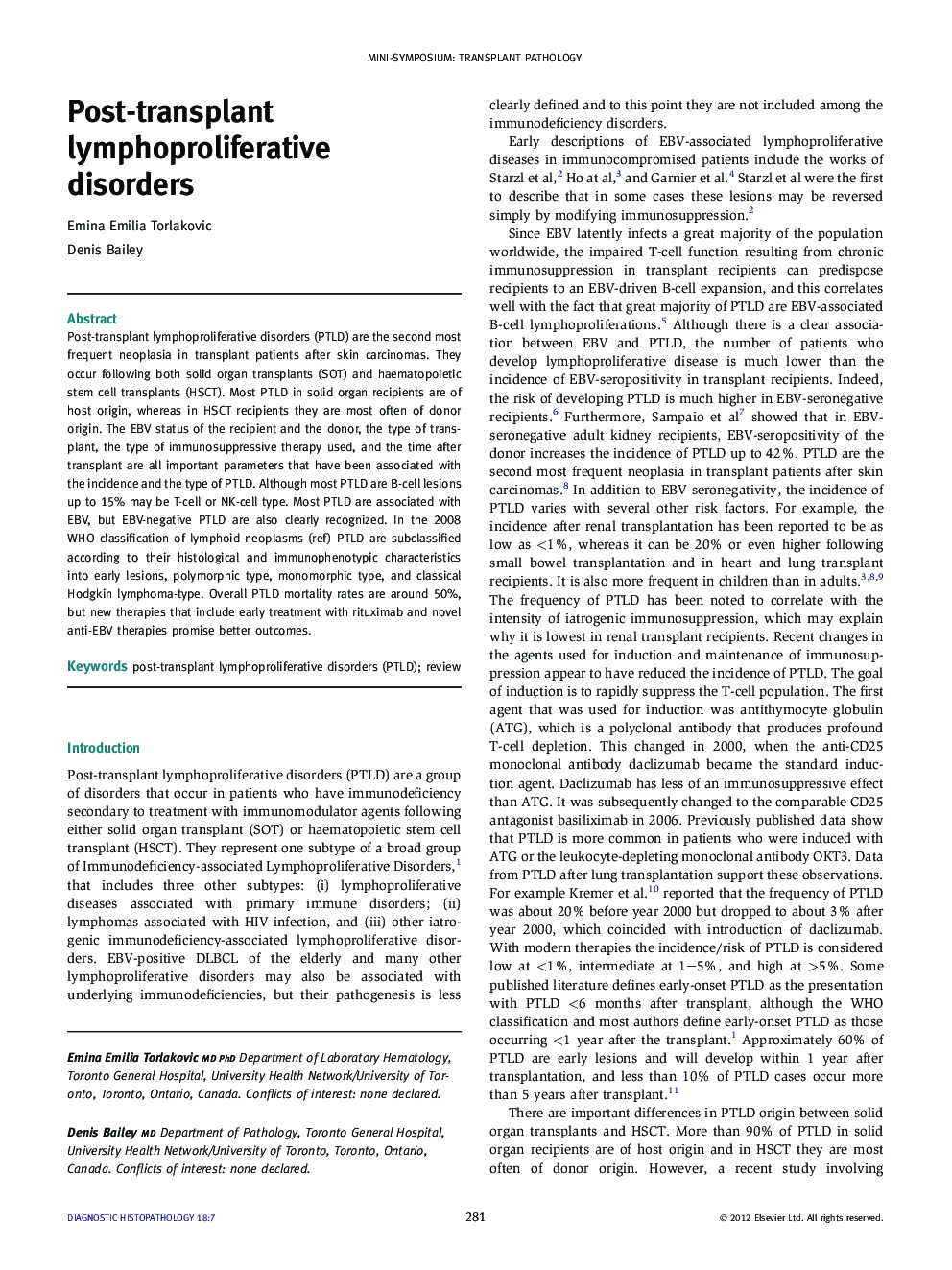| کد مقاله | کد نشریه | سال انتشار | مقاله انگلیسی | نسخه تمام متن |
|---|---|---|---|---|
| 4131339 | 1271219 | 2012 | 9 صفحه PDF | دانلود رایگان |
عنوان انگلیسی مقاله ISI
Post-transplant lymphoproliferative disorders
دانلود مقاله + سفارش ترجمه
دانلود مقاله ISI انگلیسی
رایگان برای ایرانیان
کلمات کلیدی
موضوعات مرتبط
علوم پزشکی و سلامت
پزشکی و دندانپزشکی
آسیبشناسی و فناوری پزشکی
پیش نمایش صفحه اول مقاله

چکیده انگلیسی
Post-transplant lymphoproliferative disorders (PTLD) are the second most frequent neoplasia in transplant patients after skin carcinomas. They occur following both solid organ transplants (SOT) and haematopoietic stem cell transplants (HSCT). Most PTLD in solid organ recipients are of host origin, whereas in HSCT recipients they are most often of donor origin. The EBV status of the recipient and the donor, the type of transplant, the type of immunosuppressive therapy used, and the time after transplant are all important parameters that have been associated with the incidence and the type of PTLD. Although most PTLD are B-cell lesions up to 15% may be T-cell or NK-cell type. Most PTLD are associated with EBV, but EBV-negative PTLD are also clearly recognized. In the 2008 WHO classification of lymphoid neoplasms (ref) PTLD are subclassified according to their histological and immunophenotypic characteristics into early lesions, polymorphic type, monomorphic type, and classical Hodgkin lymphoma-type. Overall PTLD mortality rates are around 50%, but new therapies that include early treatment with rituximab and novel anti-EBV therapies promise better outcomes.
ناشر
Database: Elsevier - ScienceDirect (ساینس دایرکت)
Journal: Diagnostic Histopathology - Volume 18, Issue 7, July 2012, Pages 281-289
Journal: Diagnostic Histopathology - Volume 18, Issue 7, July 2012, Pages 281-289
نویسندگان
Emina Emilia Torlakovic, Denis Bailey,